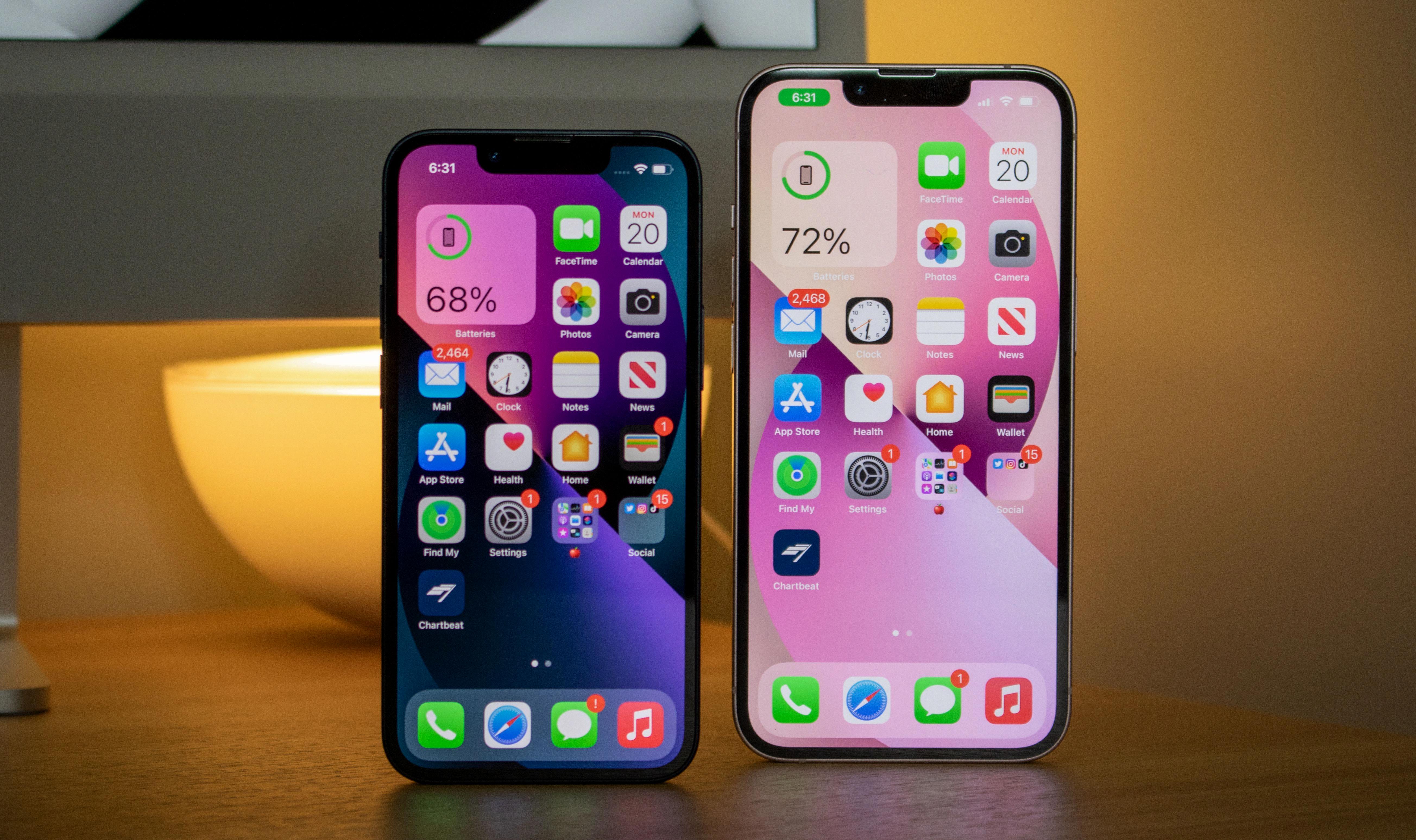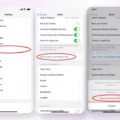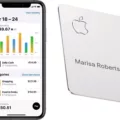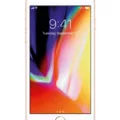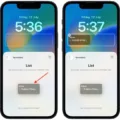If you own an iPhone, you may have been wondering why some apps keep running in the background even after you’ve closed them. Or, maybe you’re trying to save battery life and want to know how to stop apps from running in the background. Either way, understanding why apps remain active in the background of your iPhone can help you maximize your device’s performance and save battery life.
In this blog post, we’ll discuss why some apps remain running in the background on your iPhone, how this affects your device’s performance and battery life, and what steps you can take to prevent apps from running in the background. Let’s get started!
Why Do Apps Remain Running in the Background?
When it comes to understanding why some apps remain active in the background of your iPhone, it comes down to a feature called “Background App Refresh.” This feature allows certain apps on your device to check for new content or updates while they’re not actively being used. This means that when you close an app that has Background App Refresh enabled, it will continue to run in the background and check for new content or updates until it is deactivated.
How Does Background App Refresh Affect Performance & Battery Life?
The Background App Refresh feature isn’t necessarily a bad thing – it can help keep important information such as emails up-to-date so that when you open an app, you get the most recent information available – but if too many apps are refreshing at once, it can bog down your device’s performance and drain its battery life faster than usual.
How Can I Stop Apps From Running In The Background?
To prevent apps from running in the background on your iPhone, follow these steps:
1. Open the SETTINGS app on your home screen or Apps tray.
2. Scroll down and click on DEVICE CARE.
3. Click on BATTERY options.
4. Click on APP POWER MANAGEMENT.
5. Click on PUT UNUSED APPS TO SLEEP in advanced settings.
6 Select the slider for each app that you want to prevent from running in the background and turn OFF its access to Background App Refresh by sliding it off (to left).
By taking these steps, any app with access to Background App Refresh will no longer be able to refresh itself while not actively being used and will instead be put into a sleep mode until reactivated by opening it again yourself manually (as long as Put Unused Apps To Sleep is turned OFF).
Understanding why some apps remain running in the background of your iPhone is key when trying to maximize its performance and save battery life as much as possible. By making sure that only relevant apps have access to Background App Refresh and turning off Put Unused Apps To Sleep using Device Care settings within the Settings app, you should be able to easily control which applications are allowed access into running themselves while not actively being used without having any negative impact on either performance or battery life of your device!
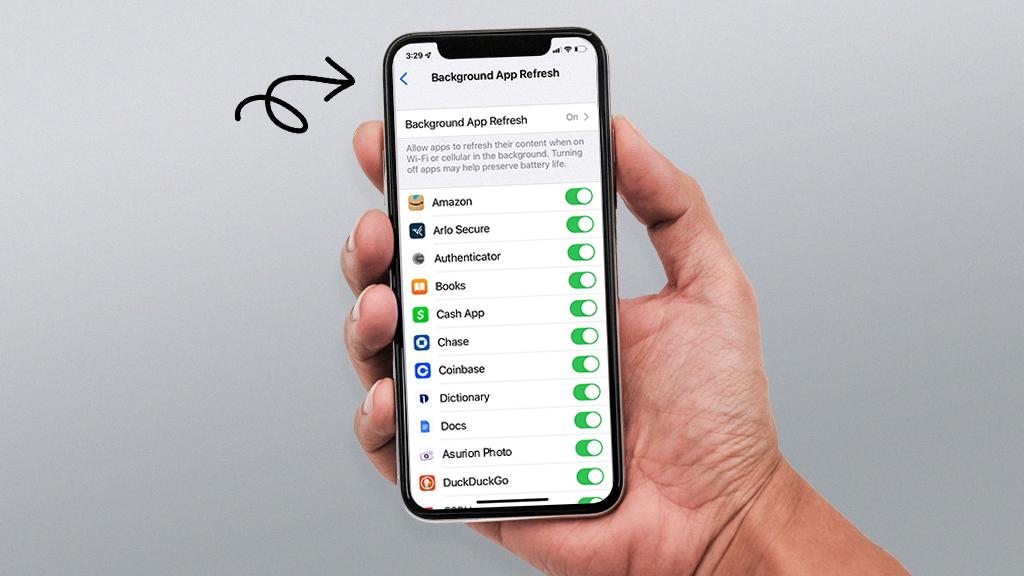
Source: asurion.com
Keeping Apps Running in the Background
To keep apps running in the background on Android, open the SETTINGS app. Then scroll down and click on DEVICE CARE. Click on BATTERY options and then click on APP POWER MANAGEMENT. In the advanced settings, click on PUT UNUSED APPS TO SLEEP and select the slider to OFF. This will ensure that your apps will continue to run in the background without being automatically put to sleep.
Should I Keep Apps Running in the Background on My iPhone?
It is not necessary to keep apps running in the background on your iPhone. In fact, closing apps running in the background can even reduce battery life due to the extra effort required to re-launch them each time you switch between apps. The iOS operating system is designed to manage background apps efficiently, so there is no need for you to intervene. When you double-click the home button to view a list of all open apps, those that are running in the background are only using a tiny amount of processing power and memory. If you want to conserve battery life, it is much more effective to turn off features such as Wi-Fi and Bluetooth when they are not needed.
Preventing Apps from Closing on an iPhone
The first step to preventing your iPhone from closing apps is to make sure that you have a good internet connection. If your connection is slow or intermittent, apps can close unexpectedly. You should also close and relaunch the app in question to see if that helps. Additionally, be sure to keep your iPhone and all its apps updated to their latest versions as this can help with any bugs or glitches that may be causing the issue.
If the issue persists, you should try restarting your iPhone entirely by pressing and holding the power button until “slide to power off” appears on the screen and then sliding it across. If that doesn’t work, try removing and reinstalling the app in question. You should also check your iPhone’s storage capacity as a lack of space can cause apps to close unexpectedly. Lastly, if none of these steps work, you can try resetting all settings on your device by going into Settings > General > Reset > Reset All Settings.
Keeping Apps Running in the Background on iPhone 12
To keep apps running in the background on your iPhone 12, you’ll need to enable Background App Refresh. To do this, go to the Settings app, select General, and then tap Background App Refresh. Here you can turn the background refresh of apps on or off. You can also choose to turn the background refresh of specific apps on or off by tapping on each app individually. Once enabled, your apps will continue to run in the background even when you’re not actively using them.
Preventing Background Apps from Closing
To stop background apps from closing, you need to whitelist them. To do this, tap on the ‘Not Optimized’ option at the top of your screen, then select ‘All Apps’ in the drop-down menu. You’ll see a list of all apps that have not been whitelisted and are killed in the background when not in use. Scroll down and tap on any app you want to be included in the whitelisted list so it can run at all times, then select ‘Don’t optimize’. That should stop those apps from closing in the background.
Should Apps Remain Running in the Background?
The answer to this question depends on the type of phone you have, your usage habits, and the apps you use. Generally speaking, it is best to keep only the apps that you use frequently running in the background. Keeping too many apps running at once can cause your phone’s performance to suffer from battery drain and reduced processing speed.
If you have an iPhone, Apple recommends that you disable Background App Refresh for most apps as this will save battery life and data. Android users should look into using Doze mode which can also conserve battery life by preventing certain app processes from running in the background when your device is idle or not being used.
Overall, it is important to understand how each app uses resources when running in the background. If an app continues to run even after you switch away from it or close it out, it may be worth disabling its ability to run in the background. As a general rule of thumb, having fewer apps running at any given time will help conserve your battery and boost your phone’s performance.
The Purpose of Apps Running in the Background
The purpose of apps running in the background is to enable quick access to the app again if needed. When an app exists on the home screen or the user moves on to another task, it remains open in the background and ready for use. This allows users to switch back and forth between apps quickly without having to reload them every time. Additionally, some apps that need to constantly update information, such as weather or fitness trackers, will remain open in the background so that they can continue to provide updated data.
The Consequences of Allowing Apps to Run in the Background
If apps are allowed to run in the background, they can cause your device to slow down, drain your battery more quickly, and use up additional data. The app may continue to receive notifications, updates, and synced data even when you’re not actively using it. This can significantly reduce the performance of your device, as the app will be constantly running processes in the background. Additionally, it may cause extra strain on your battery as it is constantly being used.
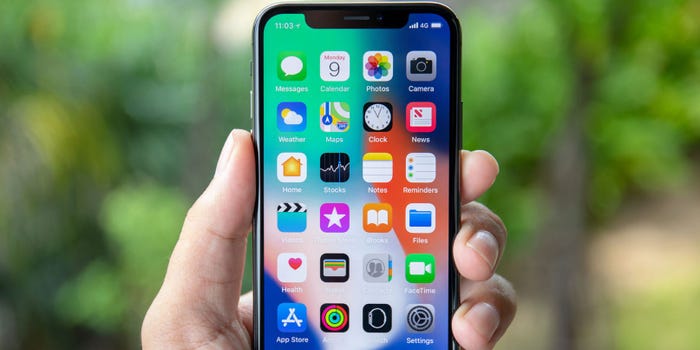
Understanding Why Apps Automatically Close on iPhones
It is possible that your iPhone is closing your apps automatically because you are running out of system resources. If you have too many apps open at once, or if you are using memory-intensive apps such as games, your device will be forced to close some of the apps in order to make room for new ones. Additionally, low battery power can cause your device to close background processes in order to conserve energy. To prevent this from happening, try closing any unnecessary apps and make sure that you have enough battery power before launching a new app.
The Causes of iPhone Apps Closing Unexpectedly
IPhone keeps closing apps due to a number of different factors, such as memory issues, a lack of available storage, device compatibility issues, and corrupted data. Memory issues can arise when the device is running low on storage and its RAM (Random Access Memory) isn’t able to keep up with the demands of running multiple applications simultaneously. A lack of available storage can also cause iPhone to close apps, as the device does not have enough space to store the data for these applications. Device compatibility issues may arise if an older version of an app is installed on your iPhone and it is not compatible with your iOS version. Corrupted data can also lead to iPhone closing apps, as this damaged information can prevent the apps from launching or functioning properly. To troubleshoot these types of issues, try clearing out any unnecessary content from your device’s storage, updating all installed applications, and restarting your device.


